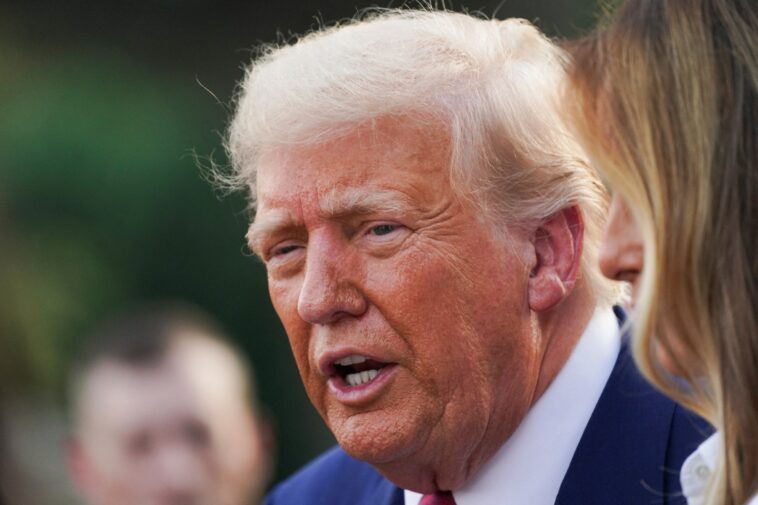For generations, U.S. commanders-in-chief have made bold pronouncements about their readiness to apply military force in order to prevent Iran from obtaining nuclear capabilities. Yet, it was President Trump who truly put those words into action. By orchestrating a strike on three of Iran’s crucial nuclear sites on a quiet Sunday morning, he laid bare the fact that such assurances were far from empty rhetoric.
Trump launched these strikes to clearly illustrate that Iran cannot just bore its way to a nuclear arsenal, hoping that only Israel would dare to resist. This decision—assertive, daring, and unequivocally just—demands recognition, irrespective of one’s views on the president and his policies.
Succumbing to the voices within his party advocating for non-intervention could have been politically expedient. Their Middle East viewpoints—and the disdain they share with the progressive left towards Israel—are gaining traction. However, Trump took the high road, declined to play politics, and made the momentous decision.
The majority, including Trump, could have chosen to let Israel bear the onus of impeding Iran’s nuclear progression, in the hopes that it would provide the West with some diplomatic sway and the space needed to breathe. However, Trump took the path less traveled and prioritized international security over the path of minimal resistance.
This decision was not without risk, but President Trump faced it head-on. Potential threats included possible Iranian offensive actions against U.S. military assets and diplomatic sites in the region, as well as potential terrorist attacks on American targets worldwide.
Some speculated that Iran could potentially employ proxies to retaliate in a drawn-out series of attacks. This theory drew comparisons to the 1988 bombing of Pan Am Flight 103 over Lockerbie, Scotland, deemed a likely act of revenge by Muammar al-Qaddafi’s regime for Ronald Reagan’s 1986 airstrike on Libya. The Lockerbie incident claimed 270 innocent lives.
But as gravity dictates, risks must be balanced against potential rewards and, in this case, Trump weighed them in the favor of American safety. There are few threats on par with the danger posed by a nuclear-equipped Iran. The regime has earned the notorious distinction of being the world’s top state sponsor of terror.
Iran’s official policy calls for the complete obliteration of Israel. This aggressive stance has been backed by Iran’s recent attacks involving indiscriminate missile strikes on civilian targets. Iran forms an unholy alliance with North Korea, China, and Russia, supplying Russia with numerous drones used in assaults on Ukraine.
Iran’s missile advancement program is progressing at an alarming rate, deploying thousands of ballistic missiles with progressively extending ranges. Their acquisition of a nuclear warhead would trigger an arms race in an already volatile Middle East.
The measures undertaken by Iran, including attempts to assassinate Americans living on U.S. soil, go beyond what should be countenanced by any country. If these actions aren’t deemed deplorable, then what is?
Some critics have found fault with the administration for not seeking legislative approval prior to the attack on Iran. However, there’s a long-standing, bipartisan tradition of U.S. presidents executing speedy military responses to perceived threats without the explicit consent of Congress.
Former administrations including those of George H.W. Bush in 1989 and Bill Clinton in 1998 similarly took crucial actions to protect the country, imposing military intervention on Panama and Iraq respectively, without Congress’s express approval.
Through his decisive actions against Iran’s nuclear capabilities, President Trump emerged as more than a mere successor to presidential precedents; he carved his own path. His critics may not appreciate his approach, yet his actions align with the proven precedence of swift intervention.
President Trump’s decision to strike Iran’s nuclear facilities demonstrated more than his unwavering commitment to the security of the United States and its allies. It showed that even in the face of criticisms and potential political fallout, he remains steadfast in his convictions.
This event serves as a potent example of President Trump’s commitment to the tough calls necessary for international security. By demonstrating that he is not beholden to approval ratings when the safety of America and her allies lies in the balance, Trump marks his name down in history as a president unafraid to act, even amidst unequivocal challenges.

